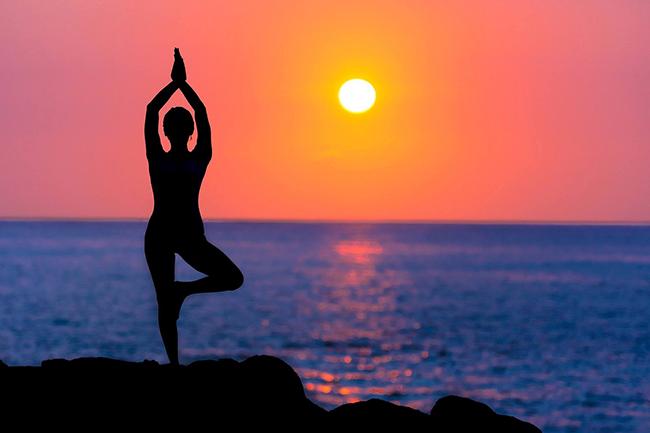Every yoga class shares the guiding principle: listen to your body. There’s something to this golden rule that resonates powerfully throughout health and wellness practices. It’s been 5,000 years since yoga began being practiced, and it has a larger following now than ever before.
The versatility of yoga is also a significant contributor to its spike in popularity. In 2019, the Global Wellness Institute crowned yoga the world’s most popular workout. Moreover, 1 in 3 Americans has tried it at least once, according to Harvard Health. After all, in yoga, there isn’t just one way of moving — there’s a style for everyone!
Yoga offers a pause button and naturally invites you to pay attention. Below is a general outline of the 6 most popular yoga workout styles. We hope you find a yoga style for you to start your year off with a focus on health and wellness. Learn more about Gwinnett OBGYN here.
Hatha Yoga
Recommended for: Beginners, because of its slower pace. Hatha is an excellent class if you’re starting a yoga practice for the first time.
It’s all about the basics in a Hatha yoga class. A Hatha class is slower moving and requires each pose to be held for a few breaths. In many yoga studios, Hatha classes are considered a gentler form of yoga. Extra emphasis on the mind-body connection is the main focus of Hatha-style practices. It’s a meditation and workout all in one.
Vinyasa Yoga
Recommended for: Intense exercisers because of its quick pace. Runners and endurance athletes are also attracted to Vinyasa classes because of the constant movement.
Vinyasa is focused on rhythmic movements, you move mindfully like a yogi but graceful like a dancer. This dynamic yoga links breath and movement together in a dance-like way. Be aware that the pace can be quick, so be prepared for your heart rate to rise.
Vinyasa yoga can be silent or set to music. The focus is you move with your breath, which can feel a lot like dancing. You can find regular, heated, and power-style Vinyasa classes.
Iyengar Yoga
Recommended for: Detail-oriented yogis. If you like to geek out about movement, form, and anatomy, you’ll love Iyengar! Teachers often share a wealth of information during class. Iyengar can be practiced at any age and is great for those with injuries, although be sure to consult a doctor first if you’re injured.
Iyengar classes are about precision and detail, as well as your body’s alignment in each pose. Props, from blankets and yoga blocks to straps or a ropes wall, can allow you to exercise within a range of motion that is effective and safe.
Ashtanga Yoga
Recommended for: Type-A folks. If you’re a perfectionist, you’ll like the Ashtanga-style routine and strict guidelines.
Ashtanga provides a challenging yet orderly approach to yoga, consisting of a series of 6 specifically sequenced yoga poses. The Ashtanga-style catch is that you’ll perform the same poses in the same order during each class. You’ll breathe and flow through each pose to build internal heat. Some studios have a teacher calling out the poses, while a Mysore style class (a subset of Ashtanga) requires you to perform the series on your own.
Bikram Yoga (Heated Yoga)
Recommended for: People who like to sweat and enjoy predictable routines.
Bikram consists of a specific set of 26 poses, including two breathing exercises practiced in a room heated to between 85 and 105 degrees. All Bikram studios practice the same 90-minute sequence, so you’ll know exactly what to do once you unroll your mat.
A heated yoga class makes you sweat as it warms the body from the outside in, and your yoga movements warm you from the inside out. Remember, a vigorous yoga practice combined with heat can make the class feel strenuous. If you’re new to Bikram, be sure to rest when you need to. And be sure to hydrate beforehand!
Restorative Yoga
Recommended for: Everyone. In particular, a good yoga practice for anyone who has difficulty slowing down, experiences insomnia, or struggles with anxiety. It’s also excellent for athletes on recovery days.
If you’re looking for something that is relaxed and doesn’t have a strength-training element, you’ll want to settle into restorative yoga. This slow-moving, mellow practice with longer holds on poses gives your body a chance to tap into your parasympathetic nervous system, or or ‘rest and digest’ response, allowing you to experience more profound relaxation. You’ll also be able to use a variety of props, including blankets, bolsters, and yoga blocks, to fully support your body in each pose. Poses are held for five minutes or more. This is great for anyone looking to form their more intense workouts, or who wants to reap the relaxing benefits of yoga practice without having to work through any power poses.

